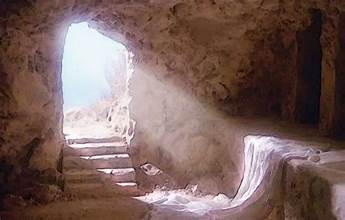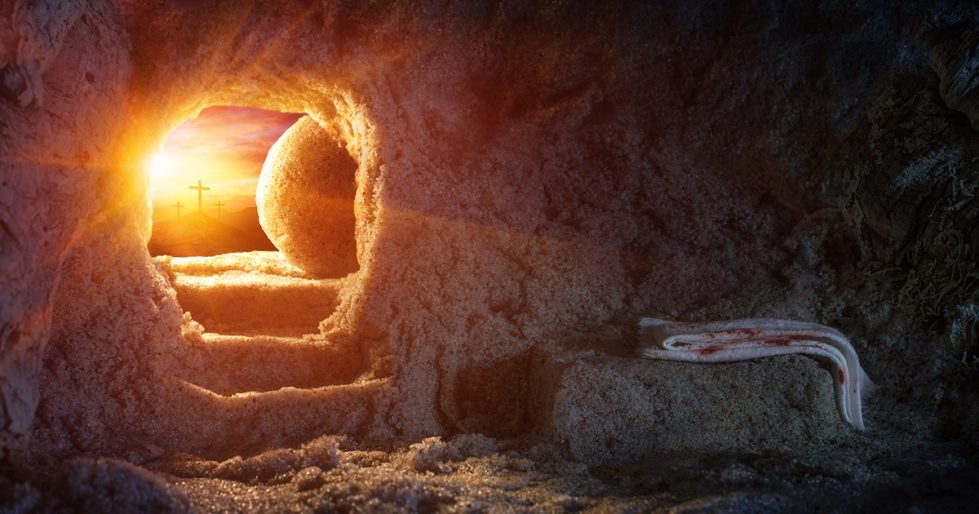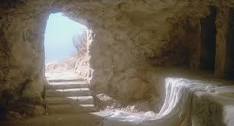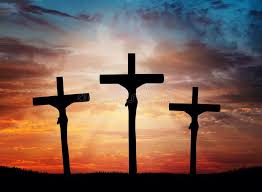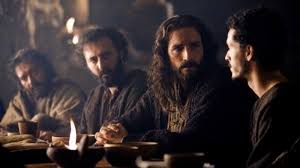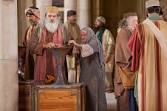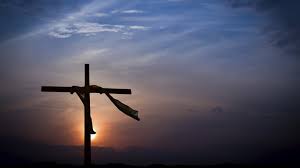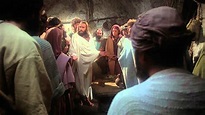Background Passages: John 20:24-29; I Corinthians 15:14-15,17, 19
Nokolai Ivanovich Bukharin was once one of the most powerful men on earth. An ardent communist and a leader in the Bolshevik Revolution in 1917, Bukharin became the editor of Pravada, the Soviet newspaper and a full member of the Soviet Politburo.
Bukharin was sent to Kiev in 1930 to deliver a major address on atheism to a huge assembly of Communist Part officials. He spent much of his time attacking Christianity, arguing against its influence and hurling insults at those who embraced it’s beliefs.
When he finished he asked if anyone had a question or comment. After a period of deafening silence a solitary man approached the platform and walked to the microphone. After scanning the crowd. He uttered three words in a strong voice he uttered the traditional greeting of the Russian Orthodox Church. “Christ is risen!”
To the astonishment and embarrassment of Bukharin, the entire assembly rose and shouted in a thundering chorus, “He is risen, indeed!”
Such is the power of Easter. “Christ is risen!”
Of the various accounts of Christ’s resurrection recorded in the gospels, I find myself drawn time and time again not to the reaction of Mary, or Peter and John, or even to the the two men on the Road to Emmaus.
I find in Thomas the most honest response to the resurrection.
If you remember, the followers of Jesus sought comfort from one another in the hours immediately after Jesus’ death and burial. They huddled together in fear of Roman or Jewish retribution. Even after the women reported that they had seen Jesus, the others were slow to grasp its truth.
Then, Jesus appeared among them, revealing his nail scarred hands and feet, munching on a piece of bread, as physically present as he had been the last time they were with him in the Garden of Gethsemane.
Though we are not told why, Thomas was not with them when Jesus first showed himself to the disciples.
It would be within his character to believe the worst. I can see Thomas, the hood of his robe draped low across his face, walking without purpose or direction through the streets of Jerusalem. Hands thrust in his pockets, trying to make sense of the horror he had witnessed from a distance and the things he thought he understood. Where would he go now that everything for which he had hoped was lost?
As he wearily climbs the steps into the upper room where he left the disciples in despair, he hears excited voices and laughter. It was not what he was expecting.
When he enters, John rushes to him, lifts him in a big bear hug, spinning him around, “He is risen! He is risen, Thomas! We’ve seen Jesus! We have seen the Lord!”
I think their excitement confounded Thomas. As they tried to explain what they had seen, none of it made sense. All of it filled him with doubt and anxiety. Finally, Thomas throws up his hands exasperated, confused, maybe even a little embarrassed and guilt-ridden.
He said to them, “Unless I see the nail marks in his hands and put my finger where the nails were, and put my hand into his side, I will not believe.”
He stewed in that uncertain misery for seven long days, unable to join in the excitement of his friends. John tells us in his gospel…
A week later, the disciples were in the house again, and Thomas was with them. Though the doors were locked, Jesus came and stood among them, and said, “Peace be with you!”
For seven days, Thomas probably sat in the corner of the room, listening to the buzz of excitement, hearing the testimony of the two men from Emmaus who very nearly busted the door open in their desire to tell their story.
The cloud that settled over Thomas grew darker every day until Jesus stood again in the middle of the room, greeting all those who saw him and rushed to his side. Can you put yourself in Thomas’ sandals now? Stunned to see the truth that others proclaimed and instantly filled with shame and regret for not believing them.
As Jesus patiently greeted those who swarmed around him, his eyes searched the room for Thomas. Finding him, Jesus quietly excused himself, pushed through the throng and stood before his pessimistic disciple, stretching out his hands.
Then, he said to Thomas, “Put your finger here. See my hands. Reach out your hand and put into my side. Stop doubting and believe. Thomas said to him, “My Lord and my God.”
Despite his pessimism, despite his struggle to believe, Thomas offered the only response to Jesus that really matters. “My Lord and my God.”
What a superb and perfectly simply declaration of faith. The resurrection matters. “He is risen” is more than a religious catchphrase, it is the cornerstone of all we believe. It is what made Paul lay it on the line with the Corinthian church.
If Christ has not been raised, then our preaching is useless and so is your faith. More than that, we are then proved to be false witnesses about God, for we have testified about God that he raised Christ from the dead. If Christ has not been raised, then your faith is futile and you are still in your sins. If only for this life we have hope in Christ, we are of all people most to be pitied. (I Corinthians 15:14-15, 17,19)
So what made the difference for this tough and hard-nosed disciple? What precipitated this radical change from skeptic to believer?
Simply, he saw Jesus.
Some consider Jesus response to Thomas’ declaration an admonition of some sort. “Tsk, tsk. You had to see to believe. Such little faith.”
I don’t see it that way. Look at what he said.
Jesus said to him, “Because you have seen me, you have believed. Blessed are those who have not seen, and yet have believed.”
Jesus rejoiced that for Thomas “seeing was believing.” I think he showed up that day in the upper room for that reason only. To show himself to Thomas. To bring him back into the fold because he wanted and needed Thomas to believe.
Though we may not see Jesus in the flesh as did Thomas, we “see” him in his words recorded in the Bible as they come to life under the inspired presence of his spirit as it convicts us of our need for him. We “see” him in the faith and witness of others whose lives reflect his image.
When we finally “see” him for who he is, our response ought to be the same response proclaimed boldly by Thomas, “My Lord and my God.”
That’s the blessing Jesus refers to at the end of the passage. Blessed, happy and content are those who don’t get the chance to see as Thomas saw and yet still put their faith and trust in him.
I will be far from home on this Easter Sunday, sailing somewhere off the coast of southern Argentina, on a day on which my oldest granddaughter Lena will be baptized because several months ago she “saw” Jesus and made him her Lord and her God.
Thanks to the technology of live streaming, Robin and I will get to rejoice with her in that special moment.
Her testimony of God’s saving grace in Christ Jesus is a blessing to her and to our entire family as we are reminded again that Easter celebrates a risen and living Lord.
“Blessed are those who have not seen (as you did Thomas), but still believed.”
Christ is risen!
